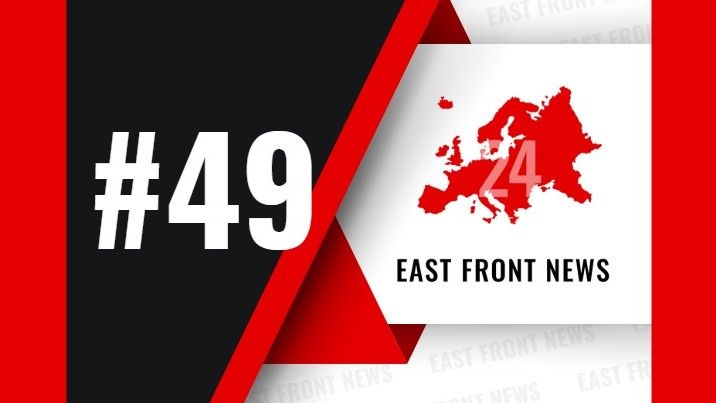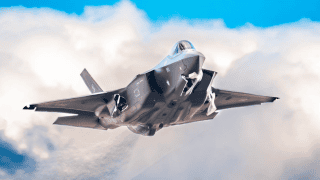- WIADOMOŚCI
East Front News #49: Poland presents helicopter priorities; Israeli attack on Iran
East Front News is a weekly newsletter summarizing the past week’s most important events concerning security and the situation in the Central and Eastern Europe region. It includes original opinions and comments, along with key news items significant from a Polish perspective. If you would like to receive this newsletter, please sign up by clicking .

Mark Rutte urges NATO allies to focus on the Eastern Flank and raise defence spending to 5% ahead of Summit in The Hague
As part of his media campaign ahead of the upcoming NATO summit in The Hague, Secretary General Mark Rutte delivered a speech at Chatham House in London on Monday. He stressed the importance of defending the Alliance’s eastern flank and called for unity, declaring, „Let’s not kid ourselves—we are all on the Eastern flank now,” while adding, „There is no longer East or West—there is just NATO.” Rutte also reiterated that Russia remains „the main long-term threat to NATO,” warning that Moscow could be ready to attack the Alliance within five years. This, he argued, is precisely why NATO should raise defence spending to 5% of GDP by the mid-2030s.
This target would be especially attainable for countries already spending over 3% of GDP on defence, such as Poland, Estonia, Latvia, and Greece, or those approaching that level, like Lithuania. By contrast, it is difficult to imagine that heavily indebted but relatively secure Southern European states, many of which have yet to meet the existing 2% benchmark, could realistically double or even triple their defence spending. Nevertheless, Rutte’s call could increase pressure on key powers such as Germany and France to bolster their contributions, thereby easing the burden currently carried by the United States and front-line states like Poland in securing NATO’s Eastern frontier.
Polish government is considering the partial controls on the border with Germany
During the Thursday’s session of the Polish’s parliament at which a vote of confidence for the current government was passed, the prime minister – Donald Tusk raised the issue of the migration pressure and related to this border controls. According to his announcement it is highly possible to introduce this summer the partial controls on the border with Germany if the number of migrants is expected to increase. This action also responds to the steps taken by Berlin in 2023 when border controls were introduced to counter illegal immigration. During the prime minister’s speech it was also mentioned about the growing number of deportations that target the foreigners who commit crimes on Polish territory. It is also worth noting that on Wednesday a campaign of „discouragement” was launched to make people in such countries as Afghanistan, Ethiopia, Eritrea, Somalia, Kenya, Iraq aware that Belarusian and Russian regime’s promises of a flourishing life in Europe are lies. Diverse efforts are currently underway to strengthen the security and borders of Poland which has been targeted of a hybrid war waged by Minsk and Moscow since 2021.
Polish Ministry of Defence reveals the Orka timeline
The Polish Ministry of Defence announced today the current status of the Orka program. As emphasized, everything „is proceeding according to plan and without delays.”
On the X platform, the MoD reported that the Armament Agency has now delivered the complete documentation to the Technical Modernization Council, including equipment requirements, a feasibility study, as well as analyses and recommendations regarding the bids. This submission is a response to a letter from former crew members of ORP „Sokół.”
See also

New UAVs for the Polish Armed Forces. Polish MoD makes a decision
The Polish Ministry of Defence plans further purchases of MQ-9B SkyGuardian drones under the Zefir programme, Defence24.pl has learned. The acquisition of a maritime variant of these aircraft for the Navy is also under consideration.
In response to questions from Defence24.pl, the MoD confirmed that a contract for the delivery of the first batch of MQ-9B SkyGuardian drones was signed under the Zefir programme, which forms part of the Technical Modernization Plan. „Further orders are planned,” the MoD’s Department of Communications and Promotion emphasizes. It adds that more detailed information is classified.
The (un)certain future of AUKUS
According to the Pentagon the review of the US-UK-Australia security alliance has been launched to ensure that the objectives of these cooperation are following the Washington interests. AUKUS is a trilateral alliance, founded in 2021 which is designed to counter China’s military rising presence in the Indo-Pacific region. It is worth nothing that especially submarines contracts between Washington and Canberra are set to undergo review.
In the context of current actions carried out by Trump administration, move of this kind could raise the question about the future of this alliance. Certainly, this cannot be eliminated in the face of Washington unpredictability. Nevertheless, worth highlighting that such review has been also conducted by United.
Firstly, training-attack helicopters. Poland presents helicopter priorities
„We are not cancelling any contract; only the priorities for introducing specific platforms are changing,” said Deputy Minister of Defence Paweł Bejda about the cancellation of the procurement procedure for 32 S-70i helicopters. The ministry wants to purchase training-combat helicopters first. The tender for 32 helicopters was cancelled at the end of May.
US cuts FMF loan funding, with implications for Poland
The U.S. administration has presented its proposed Fiscal Year 2026 budget for the State Department. According to these preliminary proposals, the Trump administration aims to reduce financial support programs for Europe and refocus on the Indo-Pacific.
In 2025, FMF loans and loan guarantees for military equipment purchases totaled $16 billion. Poland has made use of these funds when acquiring AH-64E Apache Guardians and Patriot air defense systems and once financed 48 F-16 multirole fighters in this way. To illustrate the scale of FMF-backed credit purchases: for the AH-64E Apache Guardian alone, Poland received $3.08 billion in 2024. Since 2022, Poland has obtained over $7 billion (more than 26 billion PLN) in FMF credit financing for U.S. military equipment, making it one of the largest beneficiaries of the FMF loan programme.
The FY 2026 plan envisions reducing FMF loan and guarantee authority to $8 billion and prioritizing loans and guarantees for recipients in the Asia-Pacific region. Under this mechanism, Taiwan is slated to receive $2 billion in loans and $2 billion in guarantees; Jordan is guaranteed $1 billion in loans and $1 billion in guarantees; and another $2 billion in loans and guarantees will go primarily to Asia-Pacific partners, though others are not excluded.
See also

Domestic terrorism as a real threat
The detention of three 19-year-olds by Poland’s Internal Security Agency (ABW) confirms that the threat of radicalisation and domestic terrorism is also present in Poland. While the country does not currently face a widespread terrorist network, the „lone wolf” model — individuals inspired by violent ideologies and global mass murderers — is becoming an increasingly realistic threat. Evidence gathered by investigators points to an advanced level of preparation, including military-style training and the accumulation of explosive materials. Particularly concerning is the choice of potential targets — civilian, symbolic, and socially sensitive, which suggests ideologically driven and highly radical motivations.
The implications for public security are clear: Poland must continue to strengthen the operational capabilities of its security services, while also investing in systematic prevention and monitoring of radicalisation processes, especially among young people. The internet, extremist forums, and social media remain the primary channels for spreading violent ideologies. The ABW’s actions deserve recognition — the suspects were detained during the preparation phase, meaning the threat was identified and neutralised before any attack could occur. This underscores the importance of early detection and the ability to respond to warning signs, as well as the need for close cooperation between intelligence agencies and the justice system. In the face of a global rise in asymmetric threats, Poland must remain vigilant.
Meeting of the EU's Big Five, the United Kingdom, and Ukraine in Rome
On 12 June 2025, in Rome, the foreign ministers of the EU’s Big Five, France, Germany, Italy, Poland, and Spain, alongside their counterparts from the United Kingdom and Ukraine, held in-depth consultations on the geopolitical situation in Europe, with particular focus on the implications of Russia’s continued aggression against Ukraine. The meeting, chaired by Italy’s Deputy Prime Minister and Foreign Minister Antonio Tajani, served not only as a platform for reaffirming unwavering support for Ukraine’s sovereignty and territorial integrity, but also for coordinating concrete steps in military, financial, and political assistance. Polish Foreign Affairs Minister Radosław Sikorski emphasised the strategic necessity of maintaining the momentum of Western aid and accelerating Ukraine’s integration with Euro-Atlantic structures, particularly in light of the upcoming NATO and EU summits. The ministers also exchanged views on broader regional stability, hybrid threats, and energy security, stressing the importance of unity and determination in confronting authoritarian revisionism. This high-level dialogue reflected a shared understanding that Ukraine’s victory is essential for the security architecture of the entire continent.
See also

Polish Embassy in Tehran safe amid rising tensions after Israeli strike on Iran
Following Israel’s recent airstrike on Iranian military targets—described by Israeli officials as a pre-emptive response to emerging threats—the risk of wider regional escalation has grown significantly, prompting concern across global diplomatic and security circles. Despite heightened tensions in Tehran, the Polish Embassy in the Iranian capital remains safe and fully operational, with no incidents reported and ongoing communication maintained between Polish and Iranian authorities. While Iran has condemned the strike and warned of consequences, its response so far has remained measured, avoiding actions that might endanger foreign diplomatic missions, signaling a desire to contain the fallout within controlled parameters.
If you would like to receive this newsletter, please sign up by clicking.
East Front News is a weekly newsletter and article on Defence24.com summarizing the past week’s most important events concerning security and the situation in the Central and Eastern Europe region. It includes original opinions and comments, along with key news items significant from a Polish perspective.
Aleksander Olech, PhD & Jakub Palowski, Deputy Ed. in Chief, Michał Górski



















